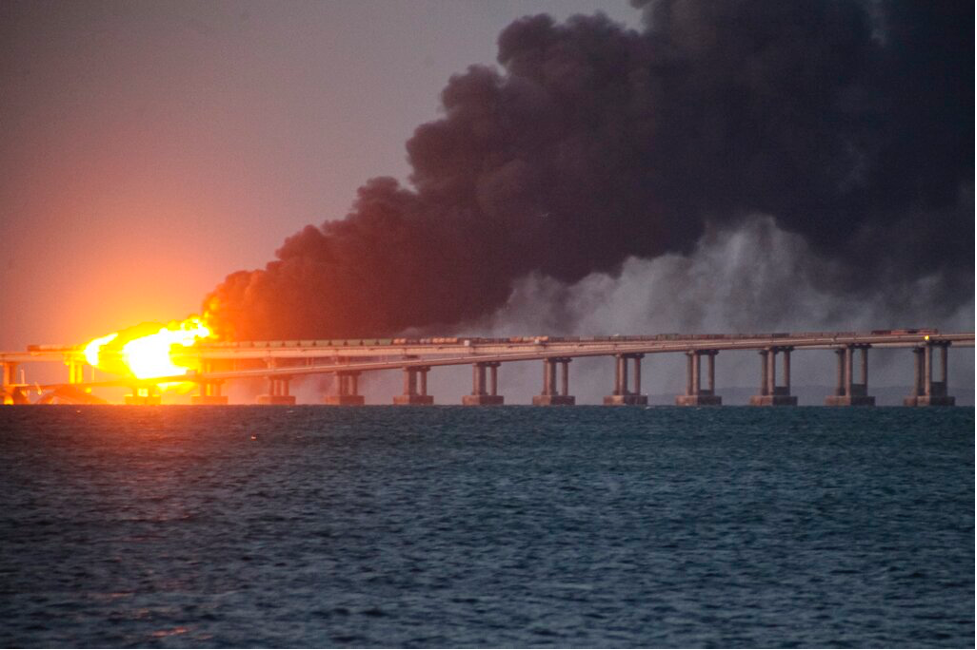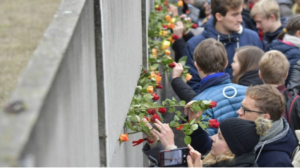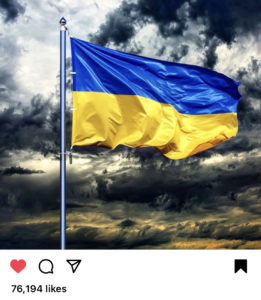
The Russia-Ukraine war is chaotically escalating, and the United States has a responsibility to bring it to an end as soon as humanly possible. This will undeniably infuriate many Ukrainians and their most staunch supporters, as many believe that Ukrainians alone should decide when the country should be willing to make peace. The reality is however, Ukraine would almost certainly be completely under the control of Russia without the West’s weapons, tactical training and intelligence. The United States alone has contributed billions of dollars to the cause. The modern Ukrainian army is a de-facto NATO army and the West has every right to pressure Ukraine to make a decision favorable to the rest of the world.
On October 24, 30 progressive lawmakers in the US House of Representatives sent a letter to President Biden arguing that the administration should change its strategy in Ukraine and directly negotiate with Russia itself. The house progressives argue that the US should pair its enormous military and humanitarian aid packages to Ukraine with efforts to “seek a realistic framework for a ceasefire,” and that “the alternative to diplomacy is protracted war, with both its attendant certainties and catastrophic and unknowable risks.” Nonetheless, the administration immediately rejected their proposal and reiterated its irresponsible laissez-faire approach by claiming that President Zelensky alone must decide “what success looks like and when to negotiate.”
On October 8, a violent explosion damaged the Kerch Strait Bridge, connecting mainland Russia with occupied Crimea. Most likely, the attack was orchestrated by Ukrainian intelligence service agents loading explosives onto a truck and driving it over the bridge.
Russian President Vladamir Putin responded to the bombings by claiming that Ukraine has placed itself on the “same level as international terrorist groups” and launching his own more severe terrorist attacks, killing at least 11 people and destroying critical energy infrastructure inside Ukraine. At this stage in the war, Russia’s increasingly terroristic “retaliatory” strikes are hardly surprising.
With the exception of Ukraine itself, no countries have suffered more than those in Africa and the Middle East, which have been devastated by radically increasing food and energy prices. Both Russia and Ukraine export enormous amounts of wheat, primarily to these regions. Russia is one of the largest exporters of energy on Earth, and the war has substantially spiked oil and natural gas prices worldwide, squeezing the economies of poorer countries. A negotiated settlement between Russia and Ukraine is one of the developing world’s greatest hopes for economic stability.
Perhaps more alarmingly, the war presents an existential threat to the world in the form of what President Joe Biden refers to as nuclear “armageddon.” President Putin has signaled that he is ready to use nuclear weapons if Russia itself is at risk and that he is “not bluffing.” It would be irresponsible to not take his threat seriously, given the intense response to the Kerch Strait Bridge bombing. While Russia has not shown signs of suicidal intentions, it is unclear if a tactical nuclear strike against Ukraine would launch a wider nuclear war with the West. Thus, we should expect that if President Putin feels that his regime is severely threatened or facing a legitimacy crisis, he would be willing to take this risk.
While most NATO officials have avoided specifying how they would react to a nuclear strike on Ukraine, retired U.S. General David Petraeus predicts that the United States will attack Russia’s remaining forces in Ukraine (including Crimea) and sink Russia’s Black Sea fleet. It is simple how this could rapidly escalate to a full-blown nuclear war, as laid out in a chilling October 12 article written by Jeremy Shapiro, the research director of the European Council on Foreign Relations.
The most direct way to de-escalate the war, return vital food and energy supplies to the developing world and reduce the increasingly overt risk of “nuclear armageddon” would be for Russian and Ukrainian officials to agree to a peaceful resolution to the conflict. Ukrainians, perhaps understandably given their increased confidence from recent battlefield wins and inarguably justifiable anger towards Russia, are mostly uninterested in such a resolution. Many Ukrainians, especially those living farther from the front lines, want a decisive victory against Russia including the recapturing of Crimea. This is an unrealistic goal, and pushing into Russian-occupied Crimea would exponentially increase the odds of a nuclear exchange. The United States and its NATO allies, therefore, need to leverage post-war reconstruction aid and further weapons sales to pressure Ukrainian officials to enter negotiations with Russia and be willing to make concessions for the sake of the world.
Threatening to withhold aid from Ukraine is, contrary to the opinions of staunch Ukraine supporters, not abandoning President Zelensky’s country. Continuing to treat Russia’s invasion as an existential threat to Ukrainian identity is dishonest and is a poor analysis of the current trajectory of the war. The Russians are not going to conquer all of Ukraine at this point, and the war is effectively being fought over roughly 20 percent of Ukraine’s territory in the east. Should the West really continue risking global nuclear holocaust, no matter how small the risk, for the territorial integrity of Ukraine’s far eastern Donbas and Crimea regions?
Russia has indicated a willingness to engage in peace negotiations, although its commitment to negotiating in good faith is questionable at best. Unfortunately, the West only has a say over Ukraine’s ability to fight this war and has few points of leverage over Russia that it has yet to deploy. Otherwise, I would apply the same argument towards U.S. – Russia relations.
Common accusations of a peaceful settlement with Russia being akin to Neville Chamberlain appeasing Hitler in 1938 are not applicable to a peace settlement with President Putin. Russia has been severely weakened by the war so far, politically and economically. Russia’s relative strength on the world stage in 2022 is not remotely comparable to Nazi Germany’s relative global strength during World War II and Russia will be unable to launch effective invasions of Ukraine anytime in the foreseeable future. Furthermore, Hitler did not have nuclear weapons, and President Putin has shown no indications of having global ambitions for a racially-motivated genocide. The absurdly common Munich Agreement argument intending to dissuade peace talks with Russia is a dangerous false equivalency that could have catastrophic consequences.
Potential negotiations would center around several key topics: the political status of Crimea and other Russian-occupied “oblasts,” water access to Crimea, shipping lanes for Russian and Ukrainian wheat exports, oil and natural gas pipelines, the status of the Russian language in Ukraine and Ukraine’s NATO and EU status. President Biden must be willing to pressure Ukraine to engage in negotiations with Russia on any of these topics. He must stand boldly and prepare for the enormous pushback they will receive from Ukrainians (especially the far-right factions), and stay on course for the sake of the world and America’s ultimate national security. In return, Ukraine should expect a post-war program and defensive weapons packages to deter Russia from ever attacking again.
The US continuing to unconditionally support Ukraine, a fighting force that without pressure will understandably accept nothing but a complete battlefield defeat for Russia, is irresponsible and deadly at best. It is world-ending at worst.



